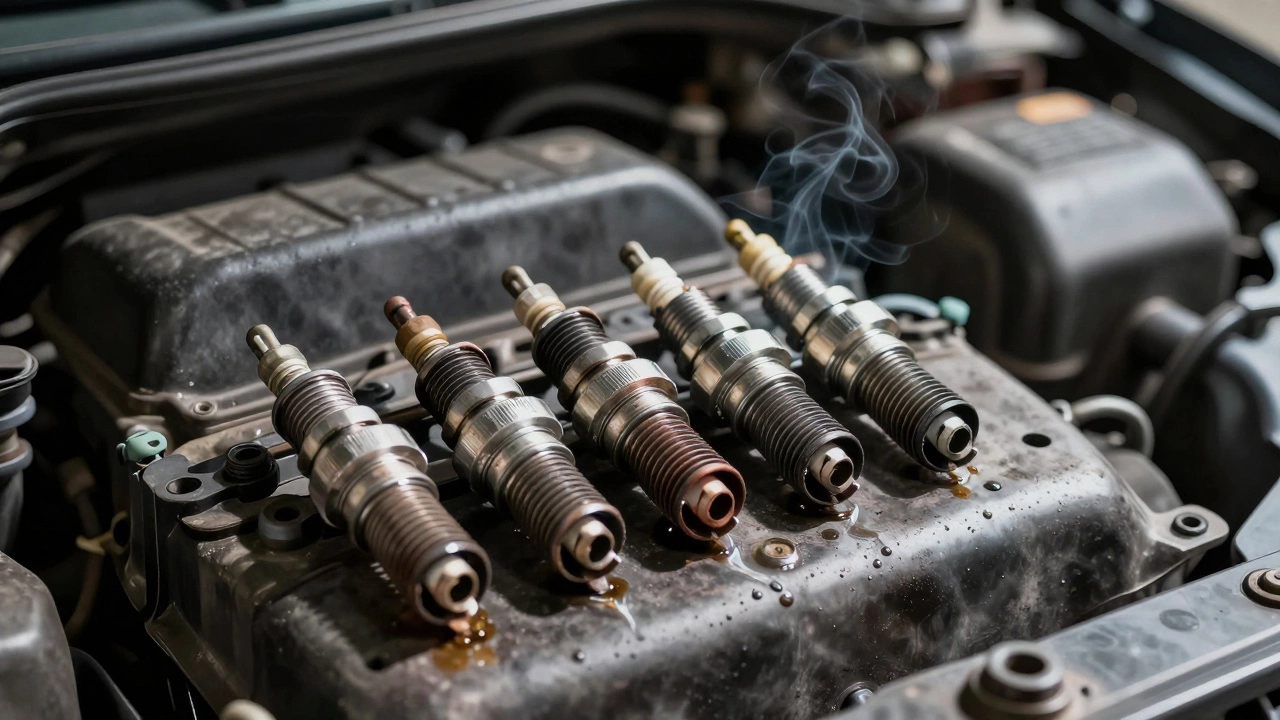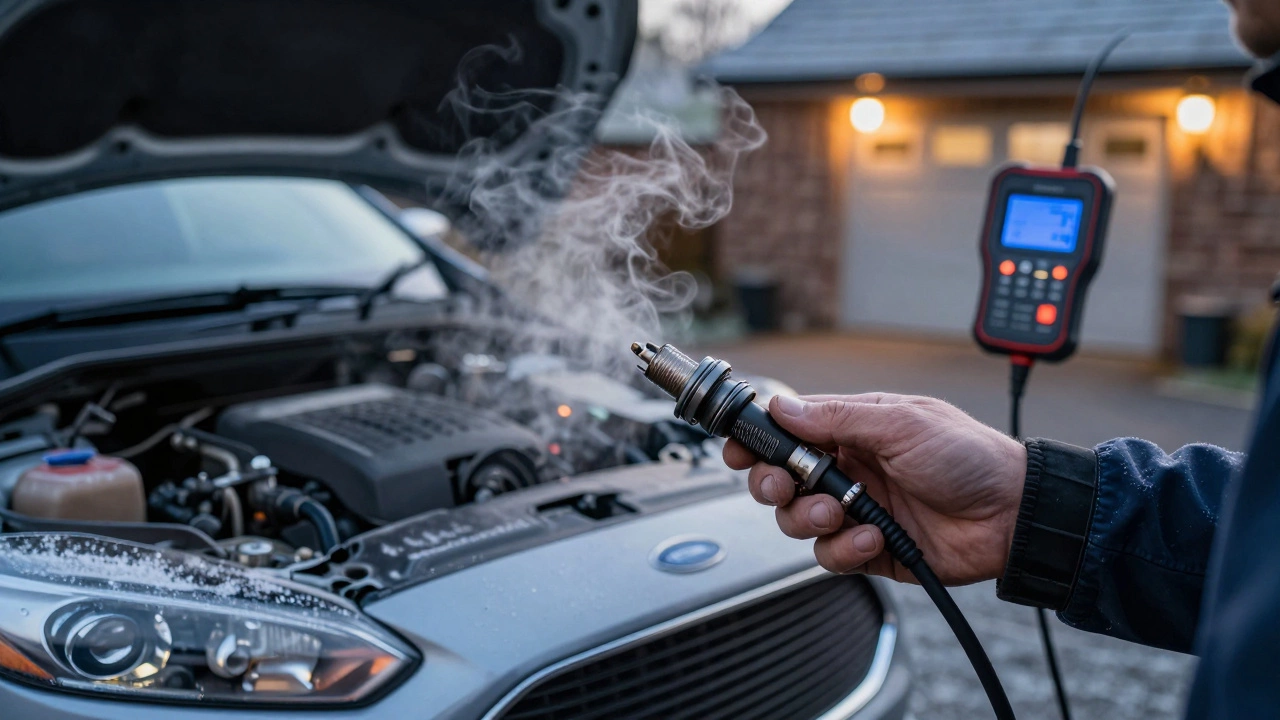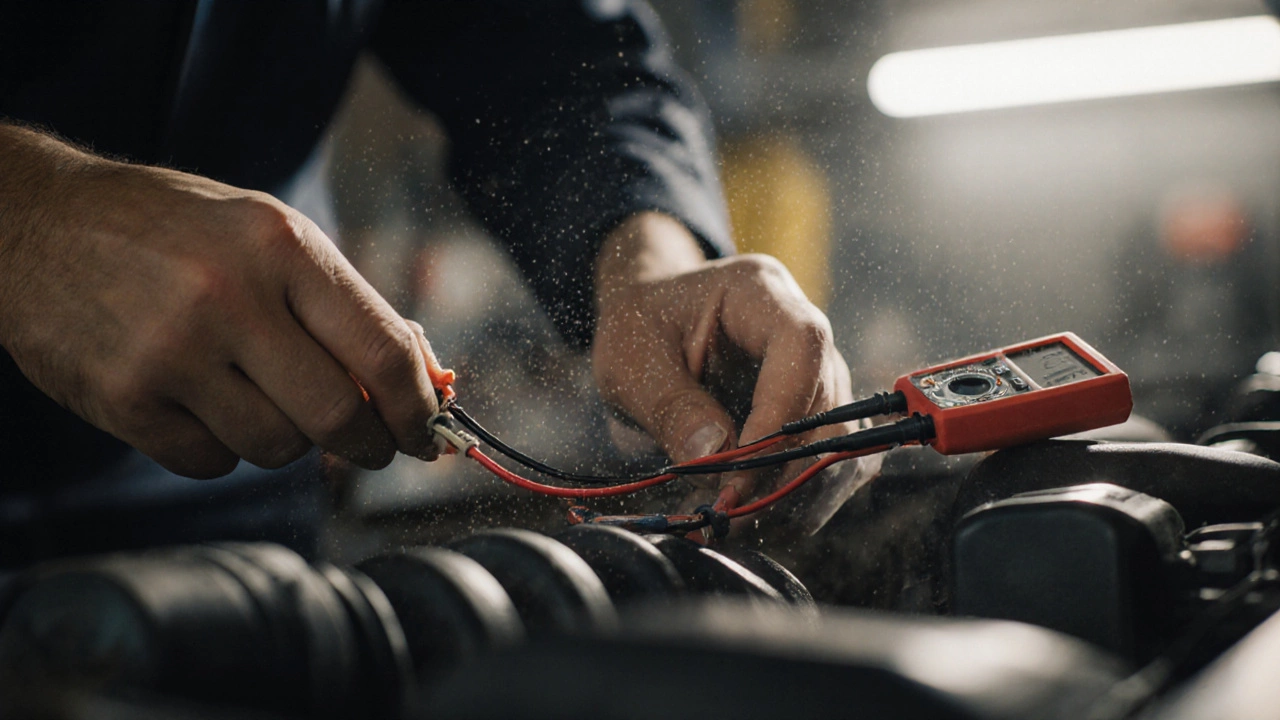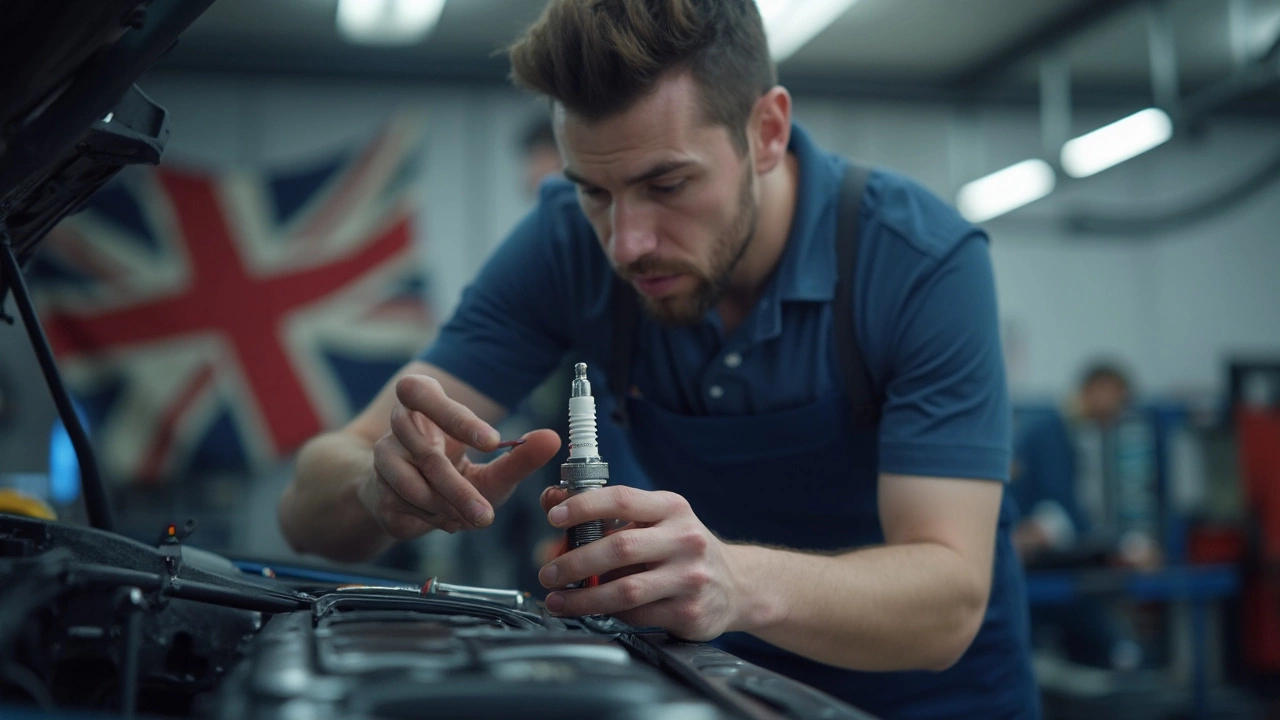Spark Plugs – Everything You Need to Know
When working with Spark Plugs, tiny metal devices that create the spark to ignite the air‑fuel mixture inside each cylinder. Also known as ignition plugs, they form the heart of the Ignition System, the collection of coils, wires and control modules that deliver high‑voltage electricity to start combustion and have a direct impact on Engine Performance, how smoothly the engine runs, how much power it makes and how efficient the fuel burn is. Because they sit at the junction of electricity and fuel, any deviation in their condition can ripple through the whole powertrain.
Key Topics Covered
The most common trouble sign is a misfire, which shows up as a rough idle, loss of power or a sudden drop in fuel economy. These symptoms are usually tied to an incorrect Spark Plug Gap, the distance between the centre and ground electrode that determines spark strength. A gap that's too wide or too narrow weakens the spark, causing incomplete combustion and higher emissions. Alongside gap, proper torque is vital; over‑tightening can crack the ceramic insulator, while under‑tightening leads to heat‑related failure. Checking the gap with a feel‑er gauge and tightening to the manufacturer‑specified torque (often around 15‑20 Nm) keeps the ignition reliable and protects the catalytic converter.
Understanding these details lets you spot a bad plug before it leaves you stranded. You’ll learn how to test a plug with a simple visual inspection, when to replace them based on mileage (usually 30,000‑60,000 miles for copper, longer for iridium), and why using the right heat range matters for different engine loads. Below, you’ll find practical articles that walk you through symptoms, DIY testing steps, cost considerations, and expert advice on choosing the best replacement for your car or boat. Armed with this knowledge, you can keep the engine humming, improve fuel economy and avoid costly repairs – all without needing a garage appointment.

Is It OK to Change Only Some Spark Plugs? What Mechanics Really Say
Dec 28 2025 / Ignition PartsReplacing only some spark plugs may seem like a cost-saving trick, but it risks engine damage, poor fuel economy, and costly repairs. Mechanics recommend replacing all spark plugs at once for smooth performance and long-term savings.
VIEW MORE
Will New Spark Plugs Improve Starting? Here’s What Actually Happens
Dec 4 2025 / Ignition PartsNew spark plugs can improve car starting - but only if your old ones are worn or fouled. Learn the signs, when to replace them, and what else could be causing hard starts.
VIEW MORE
Is It OK to Change Spark Plugs But Not Wires? Here's What Really Matters
Nov 27 2025 / Ignition PartsYou can replace spark plugs without changing wires-but only if the wires are truly in good condition. Learn how to check them, when to replace both, and why skipping wires can cost you more later.
VIEW MORE
Why Does My Car Run Worse After Changing Spark Plugs?
Apr 8 2025 / Ignition PartsChanging spark plugs is supposed to make your car run smoother, but sometimes it feels like the opposite happens. It's confusing, right? This article explores why your car might act up after a spark plug change and offers practical tips to fix it. Understanding the reasons behind this issue can save you time and stress. We’ll dive into common mistakes and how to spot them, ensuring your car runs like a dream.
VIEW MORE
Is It Good to Change Spark Plugs? Here's What You Need to Know
Apr 7 2025 / Ignition PartsChanging spark plugs might sound like a simple task, but it plays a critical role in maintaining your car's performance. This article explores why replacing spark plugs on time improves fuel efficiency, boosts power, and reduces emissions. You'll find practical advice on spotting signs for replacement and the benefits of handling this task early. Discover how a small component can make a big difference in your car's health.
VIEW MORE